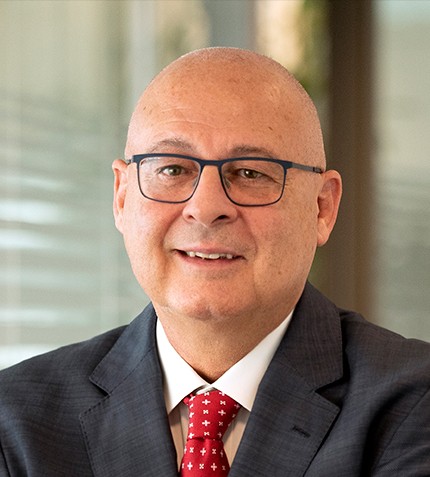
"The industry is willing to economically support Pemex to further invest in infrastructure to increase the supply of raw materials."
Miguel Benedetto
DIRECTOR GENERAL, CHEMICAL INDUSTRY ASSOCIATION OF MEXICO (ANIQ)
What are the main benefits of Mexico from a nearshoring standpoint for chemical businesses?
As many companies are looking to relocate their facilities to strengthen regional production, Mexico has become one of the options, and as more sectors decide to come to Mexico, they will need a more robust supply of chemical products. ANIQ would like to play an instrumental part in this process, identifying the specific demand of chemical products to cater for this growth. We are working with the authorities and planning how we can jointly implement what needs to be done to develop this supply chain as efficiently as possible.
How significant for Mexico is the announcement that Braskem Idesa will build an ethane import terminal, and what is the latest dialogue with Pemex to stimulate investment into domestic raw material production?
The ethane import terminal project is extremely important for the Mexican chemical industry, and is the largest investment of its kind made in Latin America ever. If this alliance is successful, it opens the door for further public and private industry collaboration in other industries and projects.
ANIQ has offered programs for investment into Pemex facilities, but this proposal is still being evaluated. The industry is willing to economically support Pemex to further invest in infrastructure to increase the supply of raw materials. In the meantime, we are importing products from the US to fulfill downstream requirements.
In April, Congress rejected the proposed constitutional electricity reform. What would reforms in this area mean for the chemical industry?
In the global chemical sector, 60% of the costs of production represent either feedstock or electricity, which underlines the importance of being competitive in these areas. After the government’s decision in April, we conducted a survey among ANIQ’s members which demonstrated that 75% of the chemical companies established in Mexico can produce their own electricity, or they have a private entity as a supplier. If the reform proposal was to succeed, it would have required that 75% of chemical companies in Mexico would have to switch from their own or private production to CFE supply. This would have two impacts – first of all, an estimated 3 billion Pesos additional cost, and secondly, we do not have the guarantee that the investment needed from CFE in order to support the growth of the industry would be made. ANIQ has shared these implications with the Ministry of Energy and the Ministry of the Economy, to express our concerns of such proposed legislation.
To what extent is a shortage of ammonia for fertilizers impacting Mexico’s agriculture and chemical sectors?
Currently, and partly due to the war in Ukraine, prices have increased by over 200%, which greatly impacted the agricultural sector. Nevertheless, in the last US Mexico meeting, there was an offer that Mexico can import some fertilizers from the US for special prices to support Mexican agricultural, which a key supplier of produce to the Americas.
Can you tell us about ANIQ’s latest initiatives surrounding sustainability?
ANIQ has had a Responsible Care program for more than 30 years, and in recent years we have incorporated all the objectives of sustainable development into this program, including how to implement and enforce these goals. We have also participated in the development of sustainability and circularity legislation. In 2021, ANIQ published its first report on circularity in the chemical industry, specifically in the plastics and resins sector. We also published our first sustainability report 2021, with the second edition published in August 2022.
In 2021, ANIQ completed the implementation of SAICM (Strategic Approach to International Chemicals Management) at a 100% level in Mexico – we are one of the few chemical industries in the world to have achieved this. ANIQ continues to work with Congress and the Ministry of Environment on how to reduce carbon emissions. Once we have achieved this in Mexico, we will move on to creating a market amongst the three countries in North America. We are currently at a pilot stage with the full program, which is expected to be implemented in 2024.










